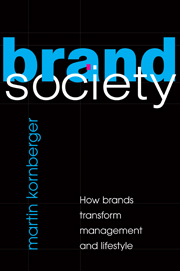8 - Ethics
Published online by Cambridge University Press: 10 January 2011
Summary
Two schools of thought
Most ethical debates are framed around two opposing schools of thought. On the one hand, there is liberal philosophy with its focus on freedom, the private and the individual; on the other there is a more loosely connected set of ideas that advocate society, the common good and justice. In the world of business, the liberal tradition, with its ideology of free markets leading to all other freedoms, including democracy and personal freedom, dominates the debate. The brand plays an important role in the defence of free-market principles: brands create accountability, loyalty and wealth for everybody. In other words, brands liberate. The more critical tradition sees brands as part of the problem, not the solution. Brands are the lubricants of free-markets in which the consumer mentality bulldozes all other forms of life. Brands are the avant-garde of the capitalist quest for world domination, spearheading the invasion of culture and privacy (or what's left of it).
The two schools are implacably opposed. When people talk about ethics, they normally join one or the other camp. Their arguments miss each other, like ships passing in the night. The problem is that if you judge each tradition by its own criteria, both are right. They both present fairly cohesive, closed logical systems that make sense from the inside.
- Type
- Chapter
- Information
- Brand SocietyHow Brands Transform Management and Lifestyle, pp. 205 - 235Publisher: Cambridge University PressPrint publication year: 2010

